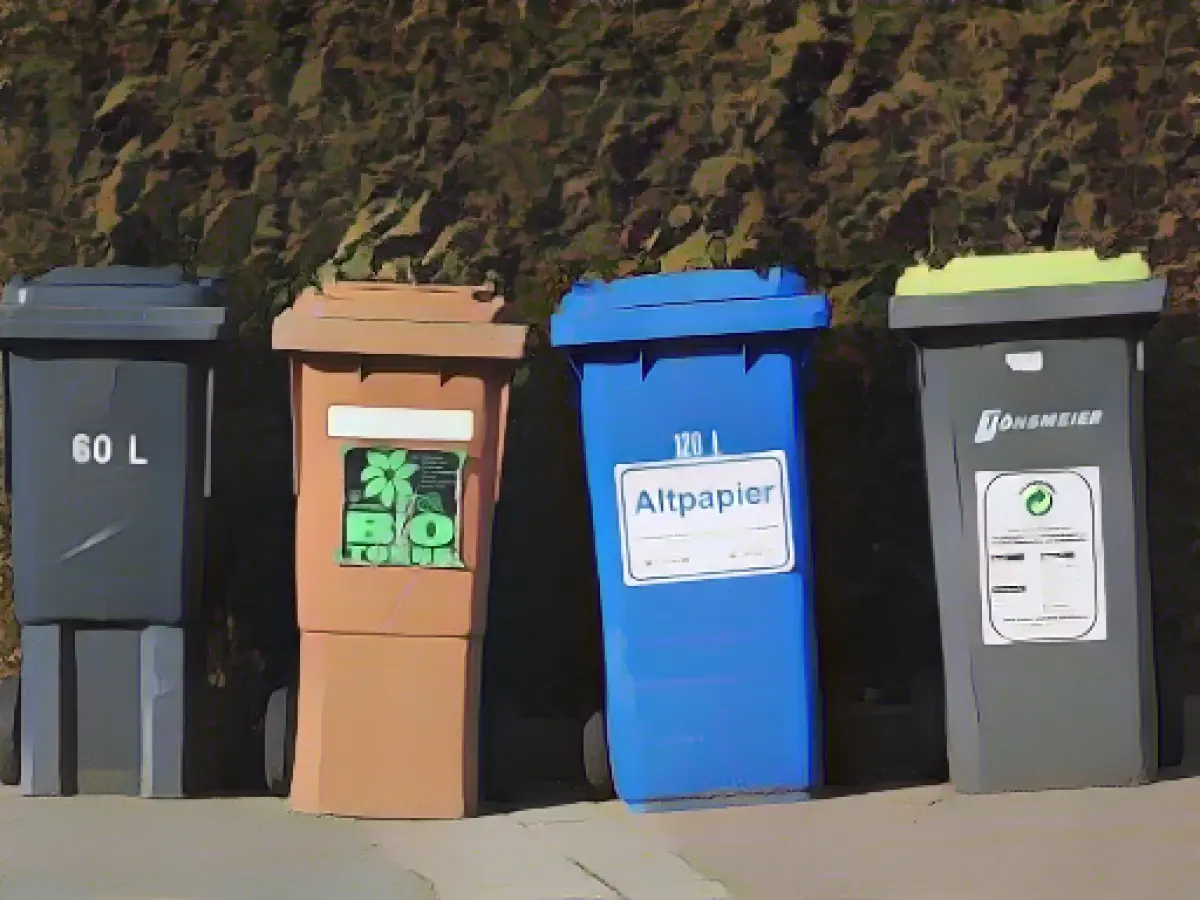Living in Saxony-Anhalt, folks have been generating less household trash lately. In 2022, waste disposal companies in the region collected an average of 443.9 kilograms of trash per capita – a decrease of 33.4 kilograms compared to the previous year, as reported by the State Statistical Office in Halle.
All in all, the total quantity of household waste amounted to 970,700 tons for 2022. Household waste and bulky waste made up approximately 43% of the collected municipal waste, with paper, cardboard, and glass accounting for around 30%, according to the office's press release. Organic waste from organic waste bins, as well as garden and park waste, comprised just under 26% of the waste collected.
This decrease in household waste production in Saxony-Anhalt resulted in a 33.4 kilogram per capita reduction in collected waste in 2022, as per the statistics provided by the State Statistical Office. This reduction led to a total decrease of 97,070 tons of household waste for the year.
While the sources do not explicitly explain why household waste production has decreased in Saxony-Anhalt, it's important to note that the composition of municipal waste can vary by region within Germany. Generally, household waste constitutes a significant portion of municipal waste, encompassing various materials such as food waste, plastics, textiles, and other domestic refuse. Bulky waste, like furniture and appliances, is another component but typically makes up a smaller fraction compared to household waste.
Paper and cardboard are also significant components of municipal waste in Germany, often constituting a substantial portion of recyclable materials. Glass is another notable component, which is often recycled. Organic waste, such as food waste and garden waste, is increasingly being managed through composting and anaerobic digestion processes, aiming to reduce landfilling and boost recycling rates.
Regional-specific percentages for Saxony-Anhalt require detailed data, which is not included in the given sources. However, waste reduction and recycling initiatives are common across Germany, typically driven by EU directives and national policies aimed at promoting environmental sustainability.








